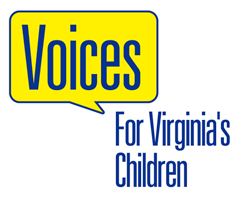What happens at the corner of Ninth and Broad Streets in downtown Richmond during the winter months? And why does it matter?
On that corner, Virginia’s General Assembly, our state legislature, meets every year for either forty-five or sixty days starting in January. For that relatively brief period of time, our forty senators and one hundred delegates consider thousands of possible new laws.
Granted, some of the issues they debate are not likely to keep you up at night – for example, one bill introduced this year specifies that it is not prohibited by state law to kill black vultures in Virginia, just in case you were wondering.
But as parents, we should know that there are many issues being discussed that have a direct impact on our families’ lives and the lives of other children in our community. Since children can’t vote, it’s up to us to speak on their behalf.
One huge piece of legislation that has the potential to influence our families’ lives and overall community well-being is the state budget. Governor Terry McAuliffe introduced his version of the budget in December, but now it’s up to the legislature to put its stamp on it. The budget likely will look substantially different by the time it goes into effect July 1. And that’s where we as citizens come in.
Are you interested in the level of state funding for public education? Governor McAuliffe included a large funding increase for K through 12 schools in his budget that would add new teachers at the elementary, middle, and high school levels. Many legislators have their own ideas about how public schools should be funded, and perhaps you would like to weigh in, too.
Are you a parent who is struggling financially and not able to afford health insurance for yourself? Maybe you want to speak up about the Governor’s proposal to provide health insurance for low-income adults through the Medicaid program.
Are you a foster or adoptive parent? You might be interested in voicing your opinion on the Governor’s “Fostering Futures” proposal, which would allow Virginia to provide housing, counseling, and other supports to young people who have aged out of the state’s foster care system at age eighteen without connections to a permanent family.
Raising your voice on these or other issues you care about is not complicated, and it can make a real difference. Legislators listen most to their constituents because we can vote for them – or not. Did you know it takes contacts from only about a dozen constituents to make an issue a top priority for a legislator?
First, determine who your state senator and delegate are. You can find this out easily by visiting the General Assembly’s website and clicking on Who’s My Legislator? The website is virginiageneralassembly.gov, and the link is at the very top of the page.
Here are a few tips to keep in mind when you communicate with your legislators during the General Assembly session. If you call, you are likely to speak with their secretaries or legislative aides.
1. Identify yourself and say you are a constituent.
2. Keep it short and to the point, focusing on one issue. Tell them whether you’d like the legislator to support or oppose a bill or budget item.
3. Make the issue local or personal. Briefly state why it matters in your community or to your family.
4. Always thank them for their time.
To see a complete Legislative Advocacy Guide, click here.
The legislature is scheduled to adjourn in mid-March. Now is the time for us to call, email, or write our legislators to let them know that children are our priority.





